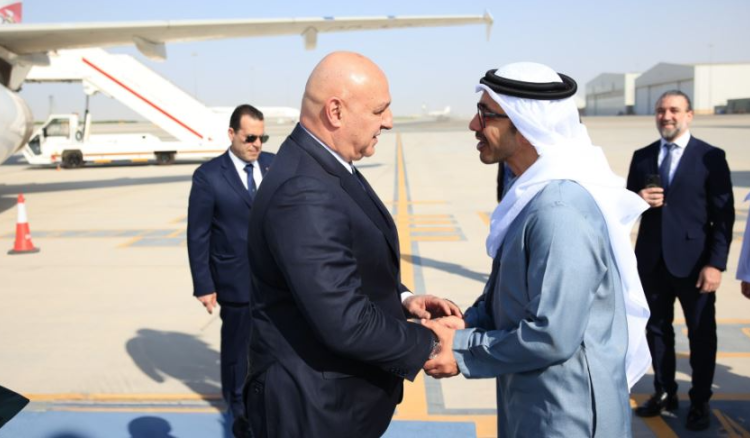
The United Arab Emirates announced on Thursday that it will lift a travel ban on its citizens visiting Lebanon, signalling a thaw in relations after years of diplomatic estrangement. The move follows a high-profile meeting in Abu Dhabi between Lebanon’s newly elected President Joseph Aoun and UAE President Sheikh Mohamed bin Zayed.
By Adnan Nasser
In a joint statement, the two governments said they had "agreed to allow citizens to travel after taking necessary measures to facilitate movement between the two countries and putting in place appropriate mechanisms."
The UAE imposed the ban in 2021 and withdrew its diplomats from Beirut in solidarity with Saudi Arabia, after a Lebanese minister criticised the Saudi-led war in Yemen. While Lebanese nationals were never officially barred from entering the UAE, many faced difficulties obtaining visas.
The UAE is looking to build on President Aoun’s election momentum, which it sees as a rare window of opportunity to re-engage with Lebanon under more favourable political conditions. Aoun, a former Army Commander elected in January with support from Riyadh and Washington, is widely viewed as a consensus figure capable of restoring state authority and curbing Hezbollah’s influence—two priorities that align closely with the UAE’s regional vision.
His inaugural speech, in which he declared that all weapons must be under the state's control, sent a strong message to Gulf states: Lebanon may finally be serious about reform. That stance, combined with Hezbollah’s weakening after its costly war with Israel in 2023–2024, has shifted the strategic calculus for the UAE and other Gulf countries that had previously disengaged from Beirut.
For the UAE, the timing is crucial. As it works to expand its influence as a regional financial and diplomatic powerhouse, re-establishing ties with Lebanon offers both economic and strategic benefits. Lebanon’s location, skilled diaspora, and deep cultural ties with the Gulf make it a natural partner—if the political environment is stabilised.
The statement said that as part of this renewed interest, the Abu Dhabi Fund for Development will send a delegation to Lebanon to explore joint infrastructure projects. This initiative is part of a broader UAE strategy of soft power projection across the region, using investment and development to consolidate influence in fragile or recovering states.
In March, Saudi Arabia also said it would review restrictions on Lebanese imports and travel, following President Aoun’s visit to Riyadh—his first official trip abroad since taking office. That visit signalled coordinated Gulf interest in reasserting influence in Lebanon, possibly as a counterweight to Iran’s waning reach in the Levant.
Relations between Lebanon and the Gulf had been strained for more than a decade due to Hezbollah’s dominance and its close ties to Tehran. But the shifting regional balance, particularly with the erosion of Assad’s position in Syria and the high cost of Hezbollah’s recent military entanglements, has opened the door for a recalibration.
With the UAE now following Saudi Arabia’s lead, Lebanon may enter a new regional reintegration phase. If the Aoun administration can translate political capital into credible reforms, Beirut may once again benefit from the Gulf’s economic power—this time with more optimism and clear expectations.
For the first time since the end of the Lebanese Civil War (1975 – 1990), it looks like Lebanon is finally getting back on its feet.







"From your mouth to God's ear," may Lebanon truly be getting back on its feet.